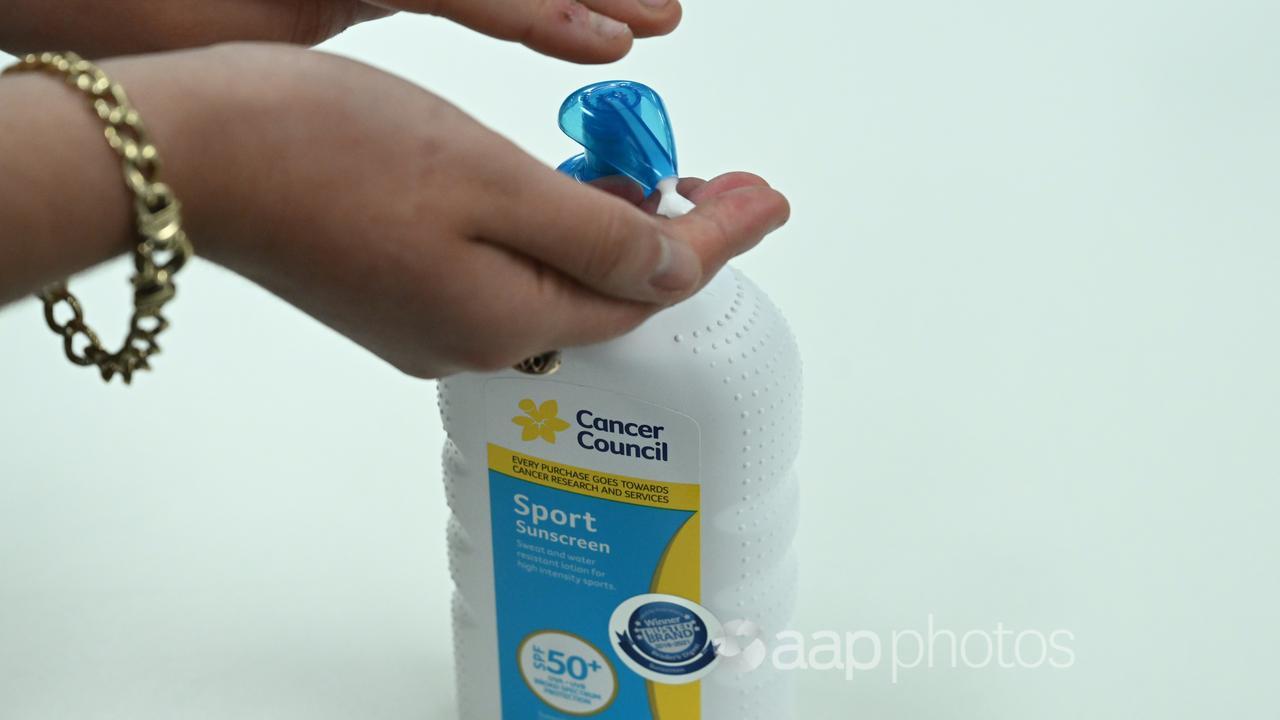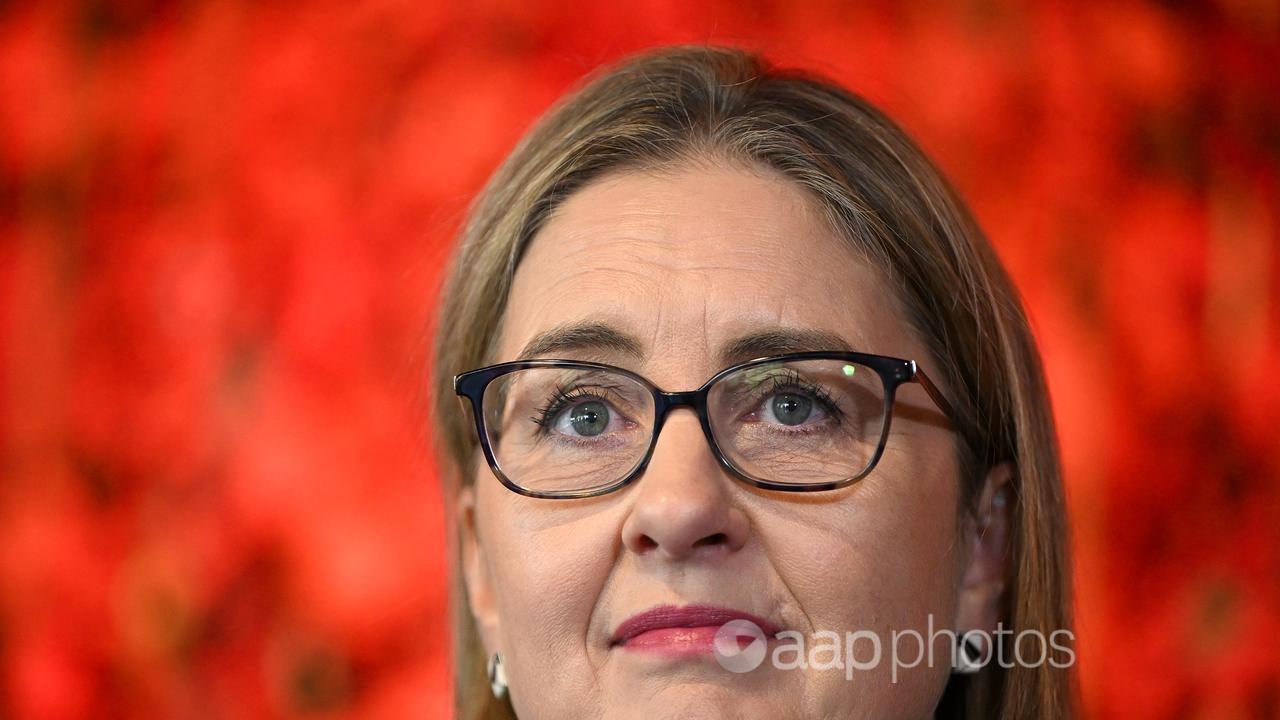A Facebook post claims ingredients in Cancer Council sunscreens are toxic and can actually cause the disease the product is meant to prevent.
The claim is misleading. Experts told AAP FactCheck the concentration levels of chemicals in the products are minute and people would need to ingest vast amounts to suffer any adverse effect.
Additionally, the Cancer Council and experts said there is no scientific evidence linking application of suncream to cancer. They labelled the claim irresponsible and dangerous as it could lead people to avoid sun protection and raise skin cancer risks.
The post (screenshot here), shared on the Ross Walter Nutritionist & Naturopath page on November 21, features three separate images of different Cancer Council sunscreens.
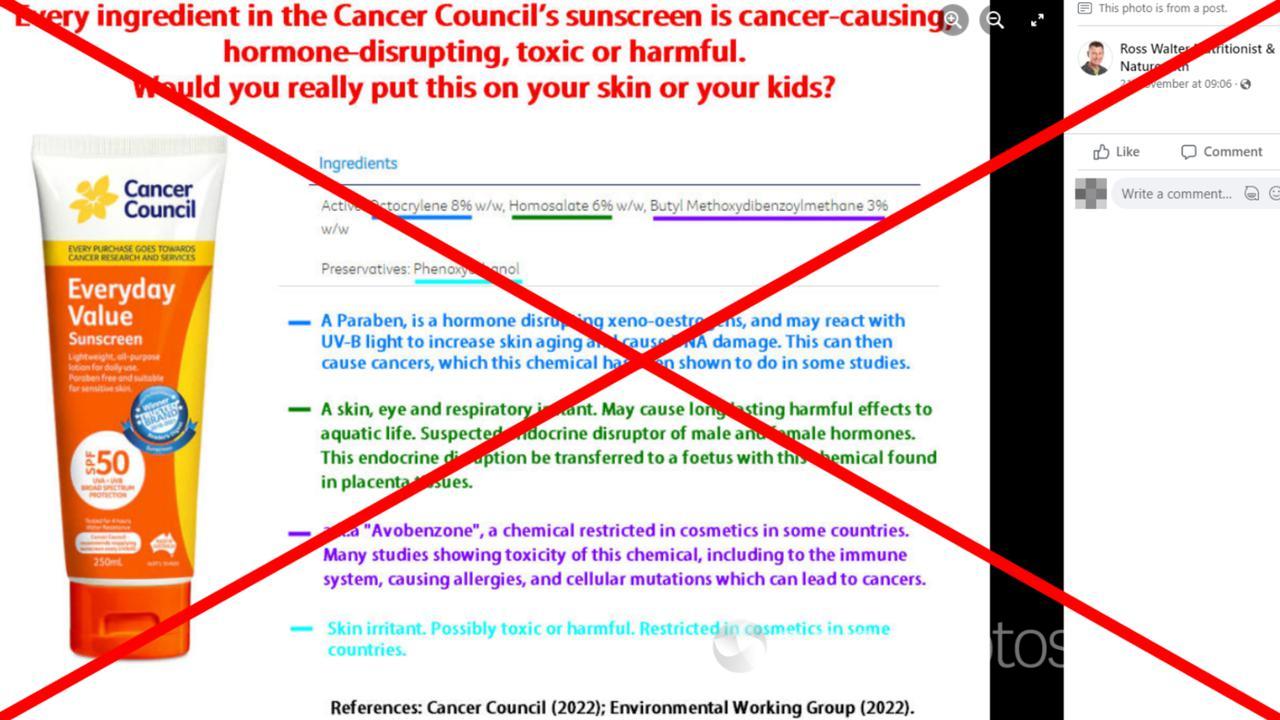
Each image is headlined: “Every ingredient in the Cancer Council’s sunscreen is cancer-causing, hormone-disrupting, toxic or harmful. Would you really put this on your skin or on your kids?”
The post lists the ingredients of each sunscreen along with dire warnings of side effects including that they disrupt hormones, can lead to cancer and cause DNA damage.
The Cancer Council, a non-profit organisation which funds cancer research, prevention and support, said the post’s claims were wrong.
Cancer Council Australia CEO Tanya Buchanan told AAP FactCheck the sunscreens were strictly regulated by the Therapeutic Goods Administration (TGA), which “determines which ingredients are safe and at what limits”.
“There is also no evidence that long-term sunscreen use is dangerous for your health, but there is overwhelming evidence sunscreen prevents skin cancer,” Professor Buchanan said in an email.
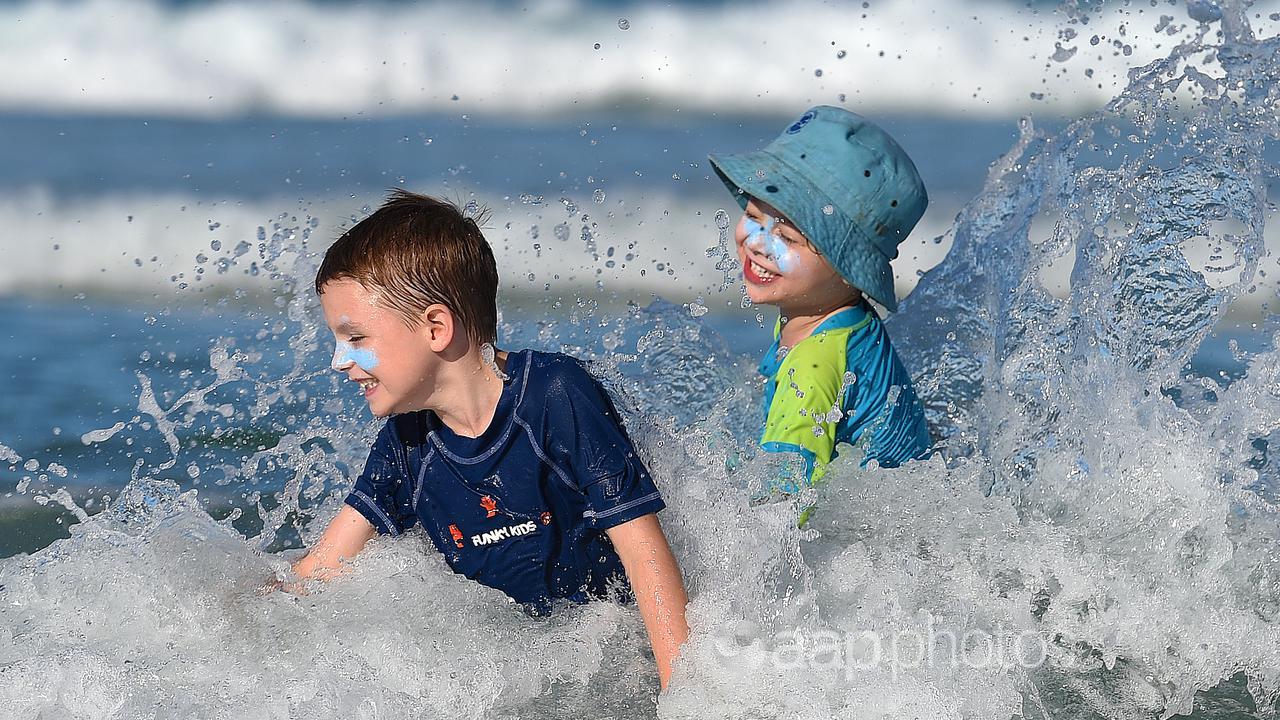
Experts told AAP FactCheck the post’s claim was highly misleading.
They pointed out that negligible amounts of sunscreen chemicals were absorbed when rubbed onto the skin, adding that studies which showed they could produce adverse outcomes involved animals being injected with the chemicals.
Ian Olver, a cancer researcher at the University of Adelaide, said in an email: “The concentrations found in the sunscreens are well within the range that the regulatory authorities, based on evidence, have deemed safe”.
Professor Olver said ingredients such as octocrylene, which absorbs ultraviolet (UV) light, were used in such small quantities “it has been estimated by scientists that it would take 277 years of sunscreen use to achieve the equivalent amount that caused toxicity when injected into rats”.
Prof Olver said butyl methoxydibenzoylmethane (also known as avobenzone), which absorbs UV rays and stops skin damage, and phenoxyethanol, used as a stabiliser and preservative, were also used within safe levels.
He said some ingredients could cause an allergic reaction or skin irritation, but this was “very uncommon”.
“If sunscreens are not used, it will result in cancers far more readily than any ingredient in the sunscreen could cause but only from animal studies when used in very high doses,” Prof Olver said.
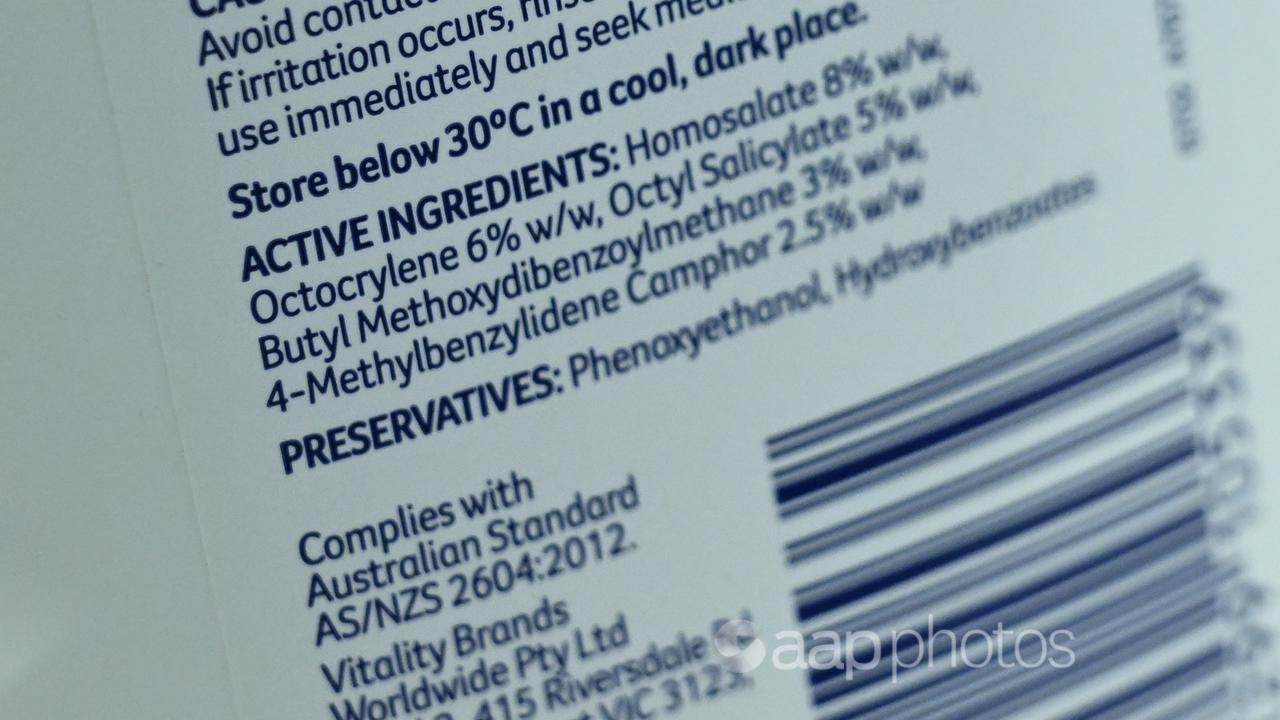
Ian Musgrave, a toxicologist and molecular pharmacologist at the University of Adelaide, called the post “extremely misleading”.
“Particularly as it implies that the levels in normal sunscreen application are potentially harmful,” Professor Musgrave told AAP FactCheck in an email.
He said one study showed the level of avobenzone in the blood after applying sunscreen (about 4 nanograms per millilitre) “was about 1000 times lower than the threshold levels for harm to skin cells”. The report also concluded there was no risk of cancer.
Prof Musgrave pointed to other studies (see here, here, here and here) showing very high doses of the ingredients were needed to have an adverse effect or any association with cancer.
He said skin cancer was a major cause of death in many countries and sunscreens played an essential role in preventing cancer.
“Given the serious harms of sun exposure leading to sun cancer, throwing unwarranted suspicion on sunscreen, which could lead to the abandonment of this component of sun safety, is extremely irresponsible,” Prof Musgrave said.
The post also claims the ingredients cause endocrine disruption. A 2001 TGA report looked into claims chemicals used in sunscreens “interfere with the endocrine system in humans”, but found no action was needed.
The Cancer Council said the studies were based on ingestion of chemicals, not the application on skin “which results in much lower absorption into the body”.
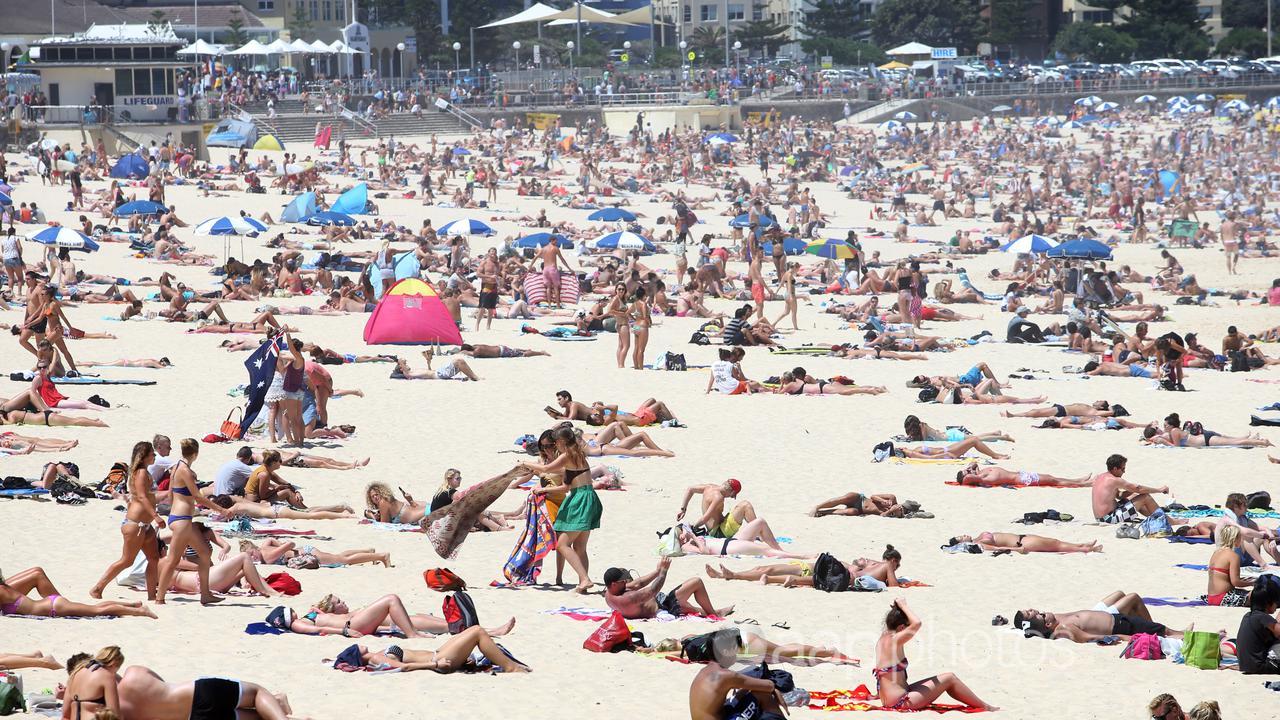
Associate Professor Nial Wheate, an expert in pharmaceutical formulation at the University of Sydney, said some sunscreen ingredients had been shown to be endocrine disruptors in “lab-based, petri-dish type experiments”.
Dr Wheate told AAP FactCheck in an email this was because they were carried out at “concentrations far higher than those found in the human body after the application of sunscreen”.
He said cancer was caused by damage to the DNA and factors such as sunlight exposure, smoking and specific viruses, but “endocrine disruption, in contrast, generally occurs when the protein sites where hormones act are blocked by chemicals”.
AAP FactCheck has previously debunked other health claims by Mr Walter (see here, here, here, here, here and here).
The Verdict
The claim ingredients in Cancer Council sunscreens are cancer-causing is misleading. Experts told AAP FactCheck the concentration levels of the ingredients in the products are minute and vast amounts of the chemicals would need to be ingested to have any adverse effect.
The Cancer Council and experts told AAP FactCheck there is no scientific evidence to support a link between sunscreen use and cancer.
Misleading – The claim is accurate in parts but information has also been presented incorrectly, out of context or omitted.
* AAP FactCheck is an accredited member of the International Fact-Checking Network. To keep up with our latest fact checks, follow us on Facebook, Twitter and Instagram.
All information, text and images included on the AAP Websites is for personal use only and may not be re-written, copied, re-sold or re-distributed, framed, linked, shared onto social media or otherwise used whether for compensation of any kind or not, unless you have the prior written permission of AAP. For more information, please refer to our standard terms and conditions.

